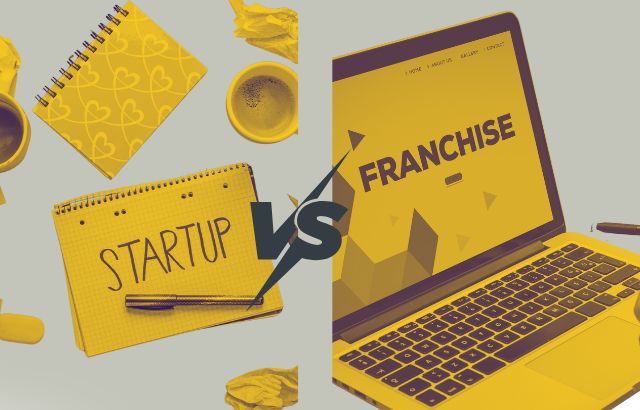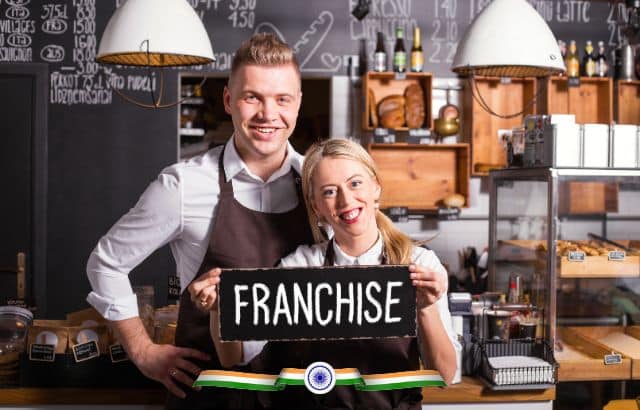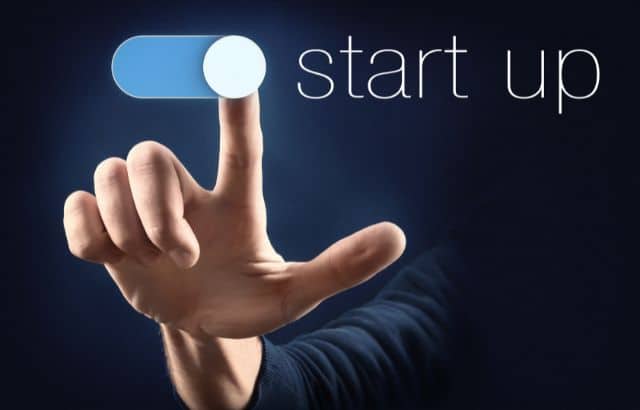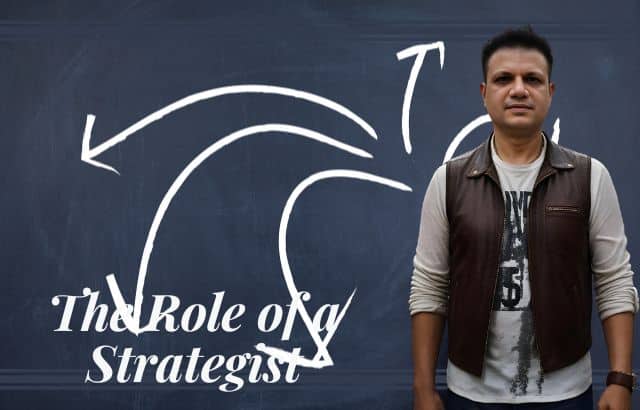Startup vs Franchisee – When embarking on the journey of entrepreneurship, one of the biggest decisions a first-time entrepreneur faces is whether to buy into a franchise or start a business from scratch. Both paths have their merits, and celebrated business strategist Hirav Shah offers valuable insights into making the right choice.
Hirav Shah explains, “Choosing entrepreneurship is a life-changing decision, and the options are clear: start your own business from scratch, or buy into a proven franchise model. Each has its own set of advantages and pitfalls. It ultimately boils down to understanding your own preferences, risk tolerance, and entrepreneurial objectives.”
This decision is not just about money; it’s about lifestyle, risk appetite, and business philosophy. Hirav Shah emphasizes the importance of self-assessment before diving into either option. Are you a creative innovator or someone who prefers the security of a tried-and-tested model?
Let’s explore the pros and cons of both models to help you navigate this important decision.
Table of Contents
Starting a Franchise Business: The Pros
Franchising offers a turnkey business model, allowing you to step into a business that has already been set up and tested. You’re essentially purchasing a blueprint for success. For instance, McDonald’s, one of the world’s largest franchises, has a proven system for business operations, marketing, and customer service that franchisees follow to a tee. With built-in brand recognition and an established customer base, franchisees can benefit from these advantages from day one.
Key benefits include:
- Lower Risk: Franchises come with a lower risk of failure compared to startups, mainly because the business model is already proven. Statistics show that franchises have a 90% success rate compared to a startup failure rate of 20% in the first year.
- Training and Support: Franchisors often offer extensive training and ongoing support. You get a complete system, including marketing, training programs, and supply chain management, to help you succeed.
- Easier Access to Funding: Banks and investors are more likely to provide financing for a franchise due to its proven track record. This can make it easier to secure the necessary funds.
Example: Dunkin’ Donuts
Dunkin’ Donuts, for example, has a highly structured model that includes everything from operations manuals to marketing strategies. A study found that 85% of Dunkin’ franchisees report satisfaction with their investment, due to the established customer base and operational guidance provided by the parent company.
Startup vs Franchisee – Starting a Franchise Business: The Cons
While franchising can seem like the safer bet, it does come with challenges that could be restrictive for certain entrepreneurs:
- High Initial Investment: Franchises can be costly to purchase, with initial investments ranging from $100,000 to over $1 million, depending on the brand. Some franchises, like Subway, can have an initial investment as high as $500,000.
- Limited Creativity: Franchises operate under strict rules. As a franchisee, you must adhere to the franchisor’s brand standards, marketing strategies, and business operations, leaving little room for personal innovation.
- Ongoing Fees: Franchisees are required to pay ongoing royalties and advertising fees, which can significantly cut into profits. For instance, McDonald’s charges royalty fees ranging from 4-5% of gross sales.
Example: The Impact of Corporate Scandals
When franchises are affected by corporate-level scandals or crises, franchisees can also feel the impact. The Chick-fil-A franchise, for example, faced nationwide protests due to controversial comments made by the CEO regarding same-sex marriage. Franchisees had to manage the fallout, demonstrating the risks of being tied to the actions and image of the parent company.
Startup vs Franchisee – Starting a Startup Business: The Pros
If you have a unique idea, launching your own business could offer significant rewards. Entrepreneurs like Steve Jobs (Apple) and Elon Musk (Tesla) turned innovative ideas into global empires. Here are the benefits of starting a business from scratch:
- Full Control: You have the freedom to innovate and run your business exactly how you want. From branding to product development, you have complete autonomy.
- Lower Initial Investment: Starting a business doesn’t necessarily require millions in investment. Many successful startups start with as little as $10,000. With the right idea and strategy, you can build your business from the ground up.
- Potential for Big Rewards: If successful, your startup could be the next big thing. Startups like Airbnb and Uber turned their founders into billionaires, demonstrating the upside of building a business from scratch.
Example: Airbnb’s Humble Beginnings
Airbnb started in 2008 with just a few air mattresses in a San Francisco apartment. The founders were simply trying to make extra money by renting out space. Today, Airbnb is valued at over $100 billion, proving that starting small can lead to massive success.
Startup vs Franchisee – Starting a Startup Business: The Cons
Starting your own business can be incredibly rewarding, but it also comes with high risks and significant challenges:
- High Failure Rate: 90% of startups fail within the first 5 years. Without an established brand or customer base, many businesses struggle to find their footing.
- Lack of Support: Unlike franchises, there is no corporate support system in place. You’ll need to build everything from scratch, including systems, supply chains, and customer service protocols.
- Unpredictability: The road ahead is full of unknowns, and there is no guaranteed success. You must continually pivot, adapt, and innovate to stay relevant in a competitive market.
Example: The Struggles of Yahoo
Yahoo is a perfect example of a startup that struggled despite early success. Initially a leader in internet services, Yahoo failed to innovate and adapt to new trends like Google and Facebook, resulting in its acquisition by Verizon for just $4.48 billion in 2017, well below its peak valuation.
Startup vs Franchisee – Which Option Is Right for You?
As Hirav Shah suggests, the decision ultimately depends on your personal goals, risk tolerance, and entrepreneurial mindset.
- If you’re someone who enjoys a structured system, wants brand recognition, and is comfortable with paying ongoing fees, a franchise may be the way to go. With a proven business model and access to resources, franchisees often face lower risks and a clearer path to profitability.
- If you’re an innovator, want total control, and are willing to take on higher risks for potentially bigger rewards, launching your own startup could be your best bet. You’ll need to invest time, money, and effort into building a brand from scratch, but the long-term benefits can be significant if your business becomes successful.
Sure! Here are the FAQs you can include:
FAQs: Startup vs Franchise
- What is the difference between a startup and a franchise?
A startup is a new business created from scratch with unique products or services, while a franchise involves purchasing the rights to operate an established business with a proven model. - Which has a higher chance of success: a startup or a franchise?
Generally, franchises have a higher chance of success due to their proven business models and established brand recognition. However, successful startups can offer higher rewards. - Can I be creative in a franchise?
In a franchise, creative control is limited. You must follow the franchisor’s guidelines, whereas in a startup, you have complete freedom to innovate and shape your business. - What are the costs associated with starting a franchise?
Franchise costs can range from a few thousand dollars to over a million, depending on the brand. This typically includes the franchise fee, royalties, and other operational expenses. - How much does it cost to start a startup?
Starting a startup can cost anywhere from $10,000 to several hundred thousand, depending on the industry, product, or service you’re offering. Startups often require personal investment or securing outside funding. - What kind of support do I get in a franchise vs. a startup?
Franchisees receive extensive support, including training, marketing, and operational guidelines from the franchisor. Startups typically lack structured support and rely on the founder’s network and expertise. - How long does it take to start a franchise vs. a startup?
Franchises can be set up in a few weeks to months as the model is already established. Startups take longer, from several months to even years, to build, develop, and launch a product or service. - Can I own multiple locations in a franchise or a startup?
In a franchise, owning multiple locations is common through multi-unit franchising. In a startup, expanding to multiple locations is possible but requires significant investment, time, and effort. - What are the risks of owning a startup vs. a franchise?
Startups carry higher risk as they are untested in the market, with many failing within the first few years. Franchises have lower risk due to an established system but still require significant financial investment. - Which is more flexible, a startup or a franchise?
A startup offers more flexibility and control over decisions, whereas a franchise is more structured and requires following the franchisor’s rules and guidelines.
Final Word
Hirav Shah concludes, “Woke entrepreneurs buy a franchise because the model works. It offers them a tested, stable model for running a fruitful business. It also requires them to operate on someone else’s model of business. For those with a big idea and a great understanding of how to run a business, setting up your own startup presents an opportunity for personal and financial freedom. Only you can make the choice in deciding which model is right for you.”
Whether you’re drawn to the security of a franchise or the potential of a startup, the key is to align your choice with your personal preferences and business objectives.

















